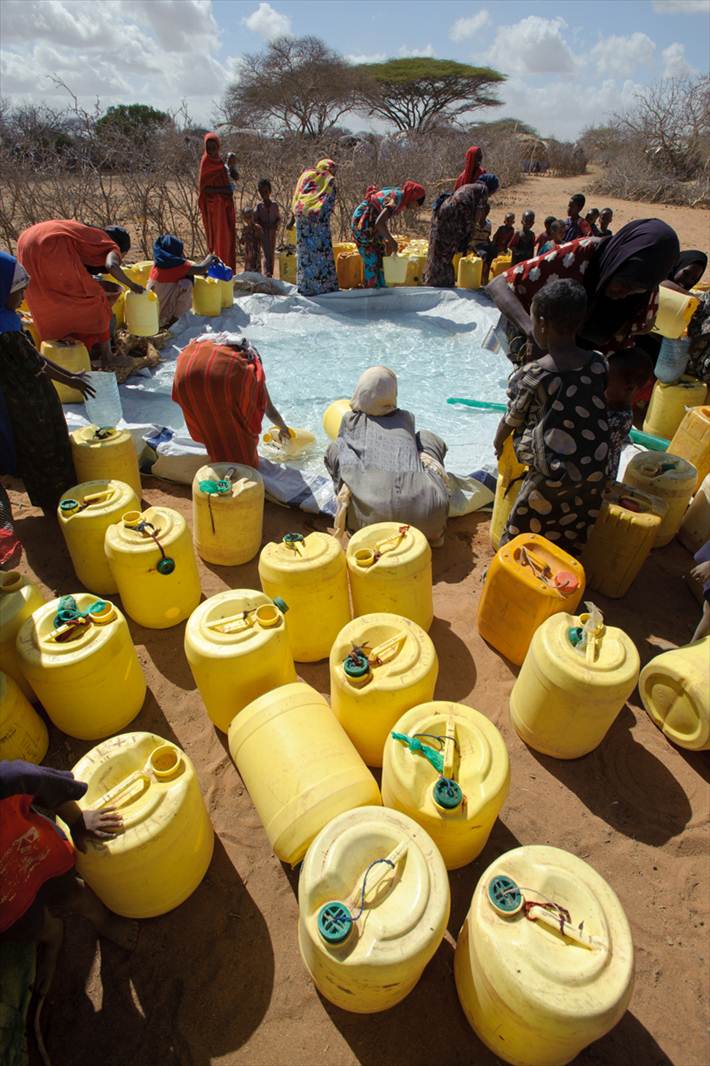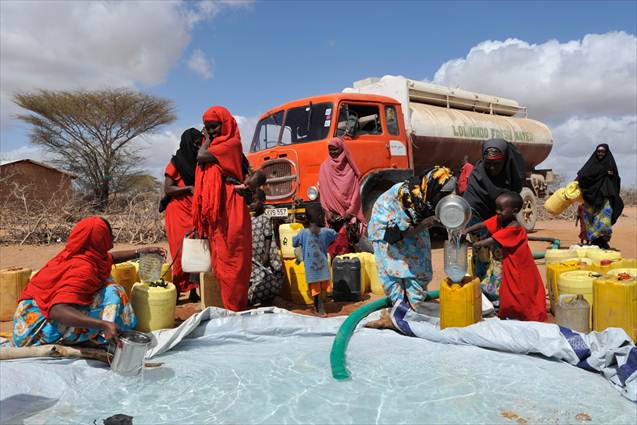Difference between revisions of "Water trucking"
(→Field experiences) |
(→Acknowledgements) |
||
| Line 32: | Line 32: | ||
==Acknowledgements== | ==Acknowledgements== | ||
| − | * [http://washafrica.wordpress.com/2011/07/18/eastern-africa-drought-7-million-in-need-of-wash-services/ WASH news Africa]. | + | * [http://washafrica.wordpress.com/2011/07/18/eastern-africa-drought-7-million-in-need-of-wash-services/ WASH news Africa]. http://washafrica.wordpress.com/ |
Revision as of 00:47, 2 February 2013


Water trucking is an alternative water source when other, more sustainable sources cannot be found. Trucking is especially useful in emergency situations or as a response to severe drought.
Field experiences
The following countries below show an example of some conditions where water trucking has been essential. This was during the African drought of July 2011, which affected seven million people.
Djibouti
Water shortages in Djibouti City are expected to persist as the peak demand for water approaches with the lean season, increasing the risk of disease. Water access of 60,000 rural people has been supported through water trucking and repair of shallow wells and boreholes.
Ethiopia
The WASH Task Force in Ethiopia has called for additional funding between June and October 2011 to support priority water trucking and borehole maintenance and rehabilitation. The cost of providing water is rising due to the physical availability of water trucks, high local demand, restrictions on trucks from Somalia, high fuel prices, and long distances between water sources and delivery sites. At the same time, the rains have elevated the threat of acute watery diarrhoea (AWD) in areas previously affected by outbreaks.
Kenya
Heavy rains in Turkana and some parts of southern Garissa have reduced the water trucking needs by up to 50 percent while pressure on boreholes has declined in several areas. The Water Sector has prioritized water trucking as a key intervention in the short term but says obtaining funds is difficult. Since the beginning of 2011, more than 322,000 people have been reached through emergency measures, such as water trucking; 51 water points have been rehabilitated and 5 newly constructed; and appropriate sanitation has been provided to 308,562 people.
Somalia
WASH partners are distributing hygiene packages which include soap, buckets for storing treated water and jerry cans to benefit 48,000 families (approximately 290,000 people) through 335 nutrition centres in south central Somalia. Hygiene promotion materials are being distributed to help health workers visiting the nutrition centres.
In June 2011, the Danish Refugee Council (DRC) has trucked water to 9.000 internally displaced persons (IDPS).
Manuals, videos, and links
- ARTICLE: Eastern Africa drought: seven million people in need of WASH services. WASH news Africa. July 2011.
- ARTICLE: Water trucking allows drought-affected community in Kenya to stay put. World Vision. May 2012.
- ARTICLE: SOMALIA: Community leaders pool together to deliver water to IDPs. IRIN News. February 2010, Nairobi.
- ARTICLE: In Ethiopia, water trucks provide essential life-line amidst drought. UNICEF. September 2011.
- ARTICLE: MYANMAR: Coping with water scarcity in the Ayeyarwady Delta IRIN. April 2010. "People in our village are always busy getting water. They are either waiting for water trucking or looking for places where we can fetch water. We can't do any other work in the dry season."
- Pike, Jill. Water by Truck in Mexico City. MASSACHUSETTS INSTITUTE OF TECHNOLOGY, June 2005.
